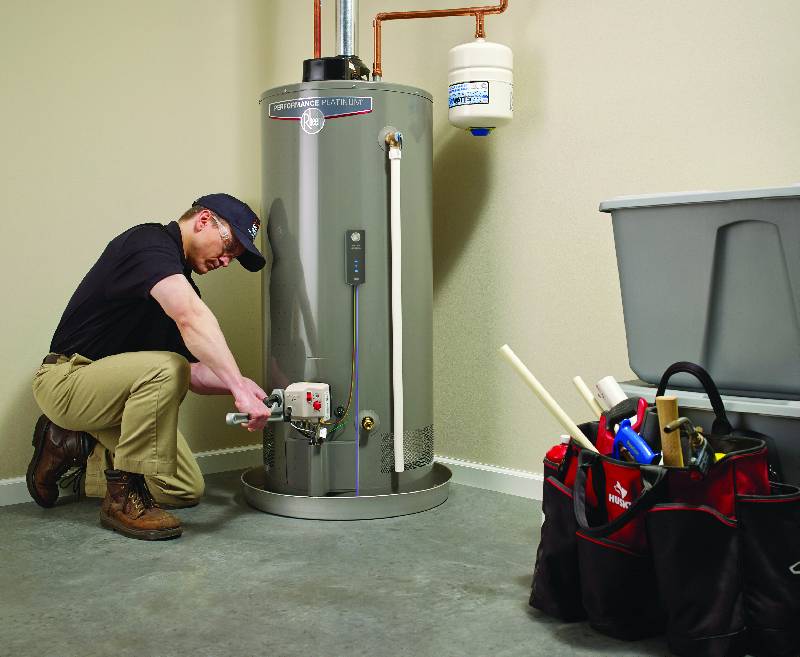Handling Everyday Water Heater Malfunctions
Handling Everyday Water Heater Malfunctions
Blog Article
Listed here below yow will discover a good deal of extremely good expertise on the subject of Common Problems with Tank Water Heaters.

Think of starting your day without your routine hot shower. That currently sets a poor tone for the rest of your day.
Every home requires a trustworthy water heater, but just a few understand just how to take care of one. One easy method to keep your water heater in leading shape is to check for faults consistently as well as fix them as soon as they appear.
Bear in mind to shut off your hot water heater prior to sniffing about for mistakes. These are the hot water heater faults you are probably to experience.
Water too warm or too chilly
Every water heater has a thermostat that figures out just how hot the water gets. If the water entering your home is as well hot in spite of setting a hassle-free maximum temperature level, your thermostat might be damaged.
On the other hand, as well cold water may result from a failed thermostat, a damaged circuit, or inappropriate gas flow. As an example, if you use a gas water heater with a damaged pilot light, you would get cold water, even if the thermostat remains in ideal condition. For electrical heaters, a blown fuse might be the offender.
Not nearly enough hot water
Hot water heater been available in many sizes, depending upon your hot water needs. If you lack hot water before every person has actually had a bathroom, your water heater is also little for your family size. You should think about mounting a bigger hot water heater container or going with a tankless water heater, which uses up much less space and also is much more sturdy.
Odd noises
There go to the very least five type of noises you can learn through a water heater, but the most common interpretation is that it's time for the water heater to retire.
First of all, you ought to know with the typical sounds a water heater makes. An electric heating unit may sound different from a gas-powered one.
Popping or banging sounds normally suggest there is a slab of sediment in your tanks, and it's time to cleanse it out. On the other hand, whistling or hissing sounds may simply be your shutoffs letting some stress off.
Water leaks
Leaks can come from pipes, water connections, shutoffs, or in the worst-case circumstance, the tank itself. Over time, water will certainly corrode the tank, as well as find its way out. If this happens, you need to change your water heater as soon as possible.
Nonetheless, before your adjustment your entire container, make sure that all pipes remain in area and that each shutoff functions perfectly. If you still need assistance identifying a leak, call your plumber.
Rust-colored water
Rust-colored water indicates among your hot water heater parts is corroded. It could be the anode pole, or the storage tank itself. Your plumber will be able to identify which it is.
Lukewarm water
Despite how high you set the thermostat, you won't get any kind of hot water out of a heating unit well past its prime. A water heater's efficiency might decrease with time.
You will additionally obtain warm water if your pipelines have a cross link. This implies that when you activate a tap, warm water from the heating system moves in alongside regular, cold water. A cross connection is very easy to place. If your warm water taps still run after shutting the water heater shutoffs, you have a cross connection.
Discoloured Water
Corrosion is a significant root cause of unclean or discoloured water. Corrosion within the water storage tank or a stopping working anode pole can cause this discolouration. The anode pole shields the tank from rusting on the inside and ought to be checked annual. Without a pole or a correctly working anode rod, the warm water quickly rusts inside the tank. Call an expert water heater service technician to establish if replacing the anode pole will deal with the issue; if not, replace your water heater.
Conclusion
Ideally, your water heater can last ten years prior to you require an adjustment. However, after the 10-year mark, you might experience any of these mistakes a lot more regularly. At this point, you should add a new hot water heater to your budget.
How To Troubleshoot 3 Common Water Heater Problems in Twin Cities
The Water Heater Is Leaking
A leaky cold water inlet valve A loose pipe fitting A leaky temperature and pressure relief valve A corroded anode rod A cracked tank Turn Off Your Water Heater:
Shut off your gas water heater by turning the gas valve on the unit to the “OFF” position. Shut off your electric water by switching its power off at your electrical panel. Look for a two-pole breaker labeled “water heater” and turn it to the “OFF” position. Move the ball valve connected to the water heater to be perpendicular to the piping at a 90° angle. Look for the Leak:
Depending on whether the water is coming from the tank's top or bottom, you’ll want to look for the leak in different locations.
If the leak comes from the top of the tank, carefully look for water escaping from the cold water inlet valve or loose pipe fittings. Rusted hot and cold water valves can have loose connections with the tank, with water leaking out of them.
https://mspplumbingheatingair.com/blog/how-to-troubleshoot-3-common-water-heater-problems
We are very focused on Common Problems with Your Home Water Heater and I am assuming you enjoyed the blog post. Are you aware of somebody else who is intrigued by Common Problems with Your Home Water Heater? Why not share it. Thanks so much for your time invested reading it.
Expert attention offered. Report this page